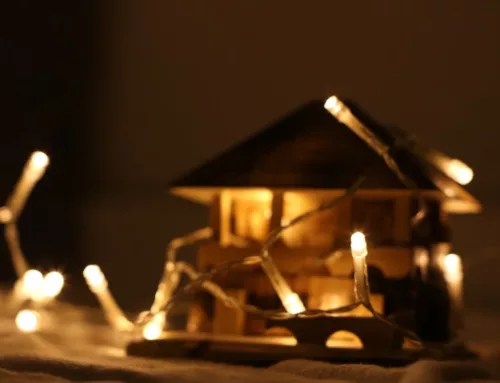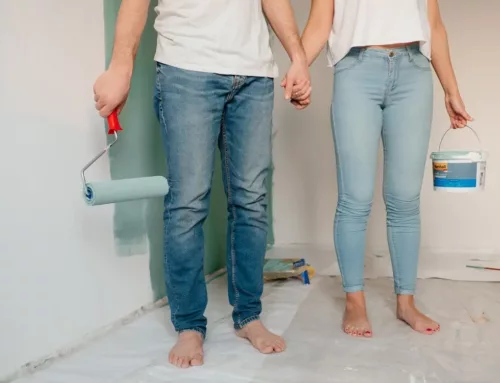People will buy homes this year at higher interest rates than anyone has paid in over a decade. They will also pay more for a property than anyone else has in that neighborhood, ever. The real estate market is in a unique place right now as prices and rates are up but inventory is down. The market is not ideal for buyers but people are still buying, especially if they find a property they really like.
While grabbing a new home is a great experience, paying for it may not be, especially when it comes to your monthly expenses. While most people like to compare the mortgage payment to the rent check, the one thing often overlooked is that your rent check covers the majority of your expenses for the rental property. However, the mortgage is just a single thing you pay on the house.
The new property is going to have a lot of costs and many of them are going to be unexpected. Moving from an apartment to a home, many are not aware that they will have to pay far more in utilities as well as routine maintenance for the property. This can push the monthly cost of a property beyond what the buyers expected, or can afford.
Lowering Monthly Costs On A New Home
While you cannot go back to the lender months after closing on a new home and try to work out a new deal, there are ways of lowering your costs on a new property. These tips may not work for your specific property or situation but they show you the options you do have and ways to improve your finances, especially when it comes to your monthly expenses.
- Pay interest upfront: If you have $25,000 that is not needed to cover the down payment of the property or to make major upgrades, you could put it towards the interest you have to pay over the first five years. This tactic allows you to pay your interest upfront which allows for the monthly cost of the property to go down significantly. Even better, because you are paying your interest upfront, you may be able to get a better deal from a lender.
- Put more money down: It’s easier said than done but some people do have the ability to put more than 20% down. If you can, and take a significant portion of the borrowed money out of the equation, do it. This will not only lower your monthly payments but it could lower the amount of overall interest you pay back to the lender.
- Cost-effective upgrades: Nearly every property needs upgrades and improvements. However, as a homeowner on a budget, you need to determine which upgrades make sense. For example, you may need a new washer and dryer. While this is an expense you were not expecting, a new unit may cut down your energy usage, saving you money overtime. Consider upgrades around the house that will help you to save money.
- DIY care: You have a nice lawn and a nice pool at your new home. Hiring someone to manage them both will save you time but it will cost you money. If you can handle these tasks on your own, at least for the time being, you can cut your monthly costs down by hundreds of dollars.
- Build for storage: Did you know that millions of homeowners pay for storage units as well? While people love their homes, most of them know the property is not big enough to store everything they have in their possession. If you can get a shed built or dedicate extra space to storage, you can cut down costs significantly and save each month.
- Hold back on wanted upgrades: Your new house is great but you want to add a couple of things. You’d love to get a new pool in there and maybe upgrade the back porch. These are all great additions that will raise the value of the property. However, they will also raise the cost of the property, not only in the short-term but the long-term as well. Do not make upgrades that will just cost you more money, especially if you are working on a tight budget.
- Let things run: One of the deals you made when closing on the property is that you were given a $5,000 discount on the final price because the air conditioning unit is over 10 years old and needs to be replaced. You were able to get that savings on the price because that’s the minimum cost for a new unit. While you are not looking forward to replacing it, avoid the cost as long as possible. Let that air conditioning unit run until it breaks down because every day it runs, it’s another day it’s saving you a major expense.
Each home provides you with different ways to save money or make improvements to lower costs. You have to be aware of some of the changes you can make immediately but also look at long-term value, especially if you are planning to stay there for more than ten years.
Can Your House Make You Money?
Throughout the last three to five years, homeowners have been focused on turning their homes into a money maker. While the levels of success each person has is different, many have had success by opening up home businesses or even renting out rooms. Short and long-term renting options are great ways to get some extra cash in for space you are not using. Even a couple of renters per month can put hundreds of dollars into your bank account and help you cover the cost of the property.
Being Patient With New Costs
New homeowners are sometimes surprised that they are seeing additional costs in their first few years of owning the home. This can be with increases in insurance, tax adjustments, increased cost in utilities and more. Prices will go up on your property every year but the overall cost will remain relatively the same. This is because your mortgage will remain steady and as long as you do not make any changes that double your monthly costs of the property, you will eventually see those costs calm down and your home become more affordable than others in the area.





